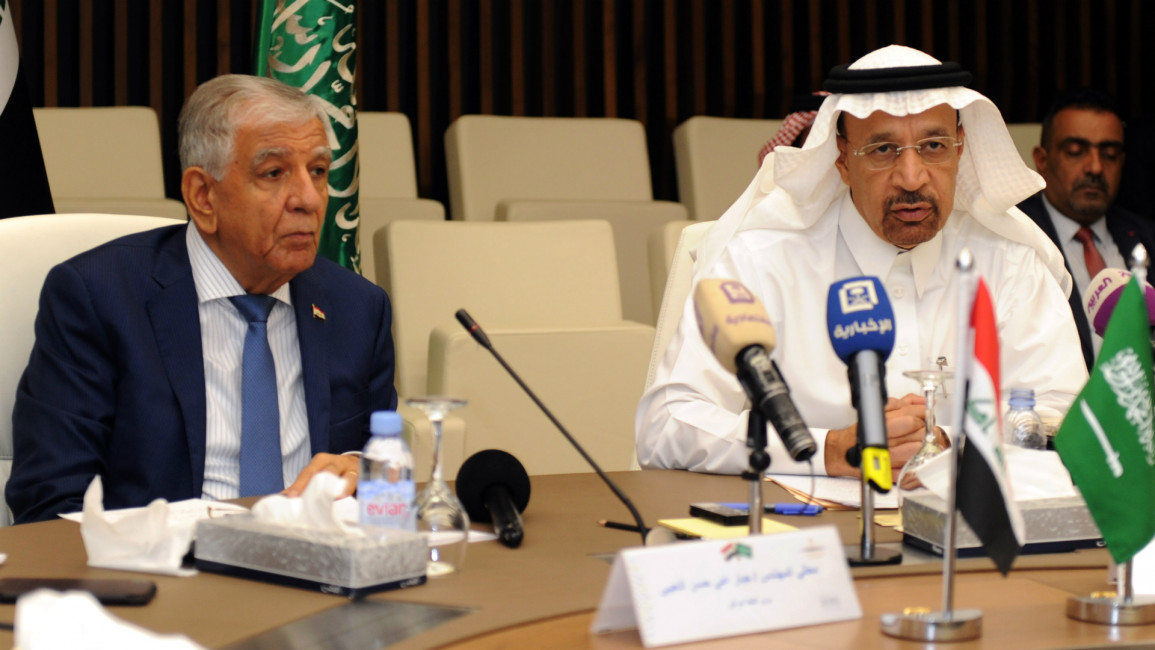Saudi Arabia to launch joint trade council with Iraq
"The cabinet has decided to approve the establishment of the Saudi-Iraqi Coordinating Commission and to delegate the Saudi minister of trade and investments to sign on behalf of the kingdom," read a statement carried by state-run SPA news agency.
The two countries went without diplomatic relations for two decades, which were cut following Saddam Hussein's 1990 invasion of Kuwait after which Saudi Arabia served as the launchpad for a US-led coalition to oust Iraqi forces.
Saudi Arabia and Iraq, OPEC's top two producers, were both dealt a serious blow when oil prices plummeted following a global production glut in 2014.
Riyadh and Baghdad showed an improvement in ties in June, when Iraqi Prime Minister Haider al-Abadi visited the kingdom followed by a series of visits by high-ranking officials.
Iraq's Energy Minister Jabbar al-Luaybi and his Saudi counterpart Khalid al-Falih last Thursday said they would stick to planned oil production cuts and promised to coordinate energy policies.
OPEC and non-OPEC members have pledged to cut back on production in an effort to stabilise market prices.
While Saudi Arabia met its production limits in July, Iraq only made one-third of the cut it had pledged, according to a report published by the International Energy Agency.
Influential Iraqi Shia cleric Moqtada al-Sadr, who led a militia that fought against the US occupation of Iraq, last month made a rare trip to Saudi Arabia, a key regional ally of Washington.
The rekindling of ties comes at a time of diplomatic crisis in the Gulf after Saudi Arabia cut all ties with neighbouring Qatar in June, accusing the emirate of supporting Islamist extremists and working with Shia Iran.
Qatar, the world's largest exporter of liquefied natural gas, has denied the allegations.



